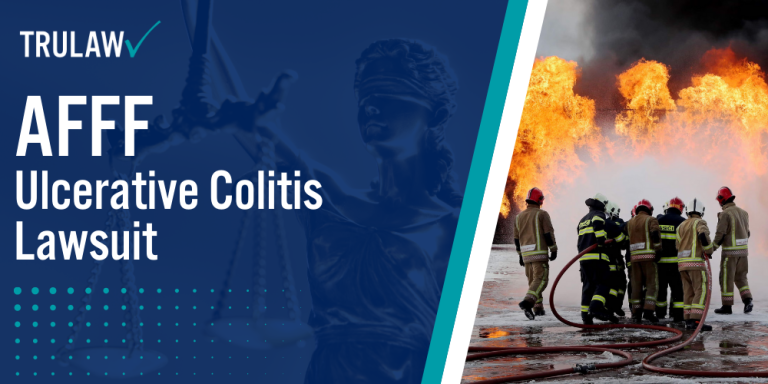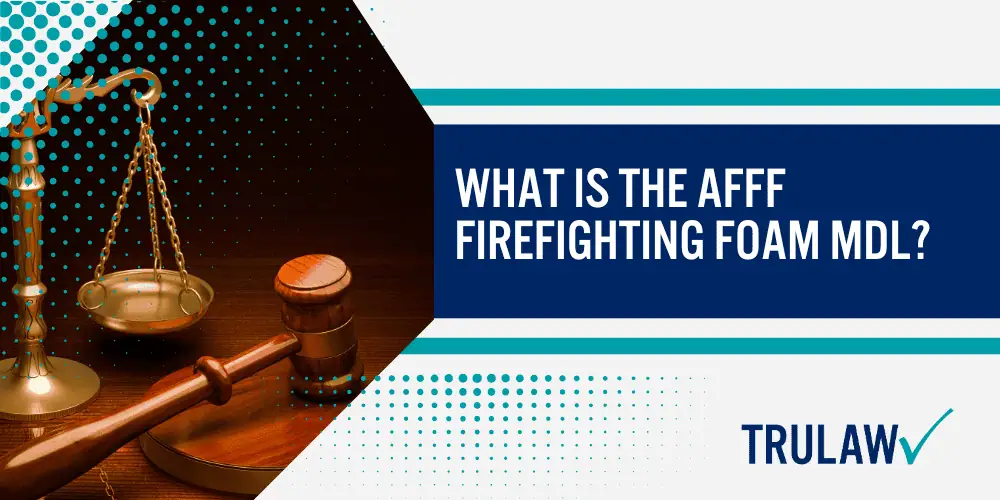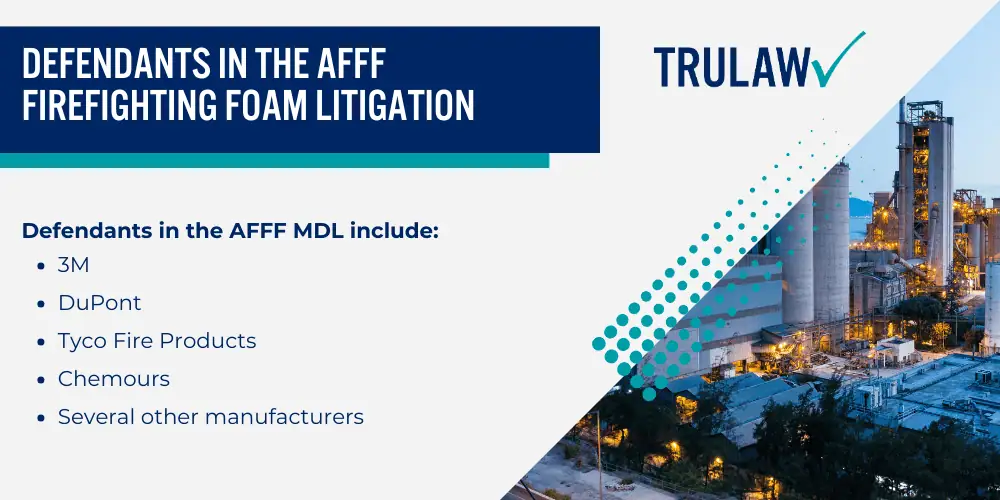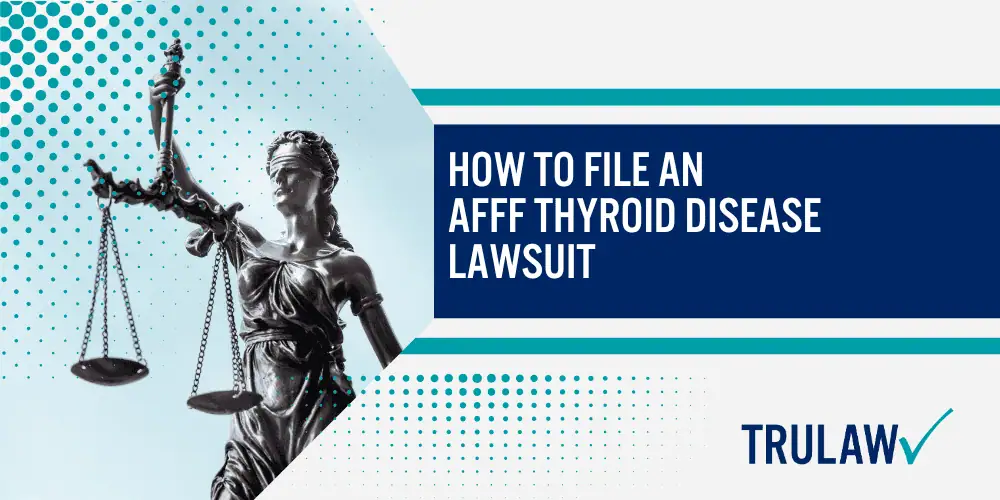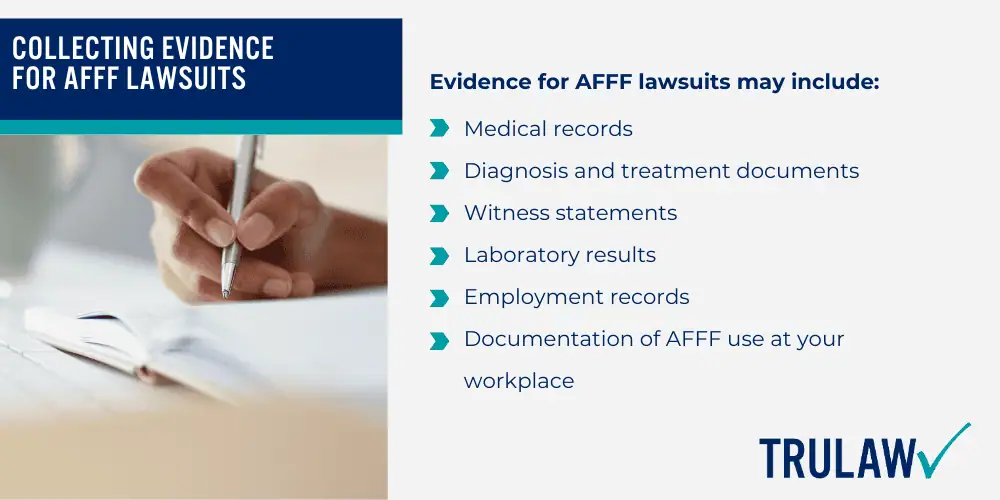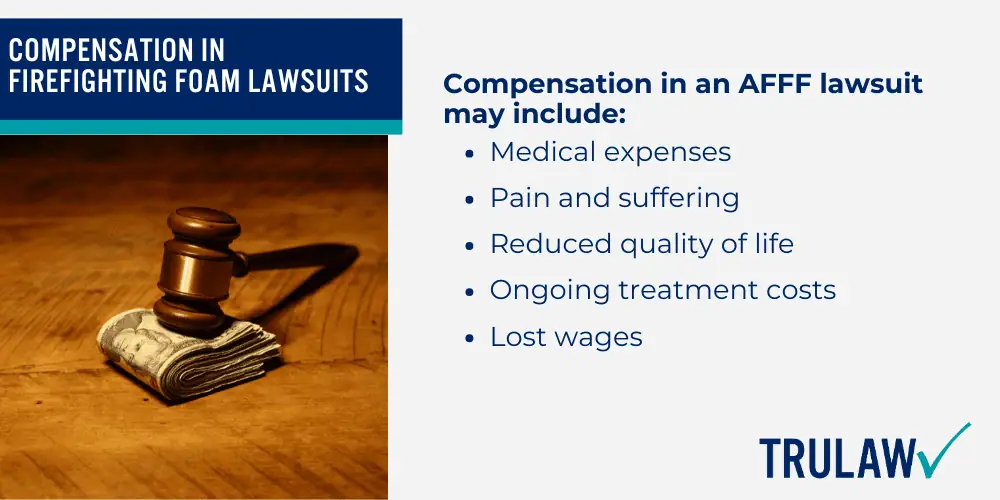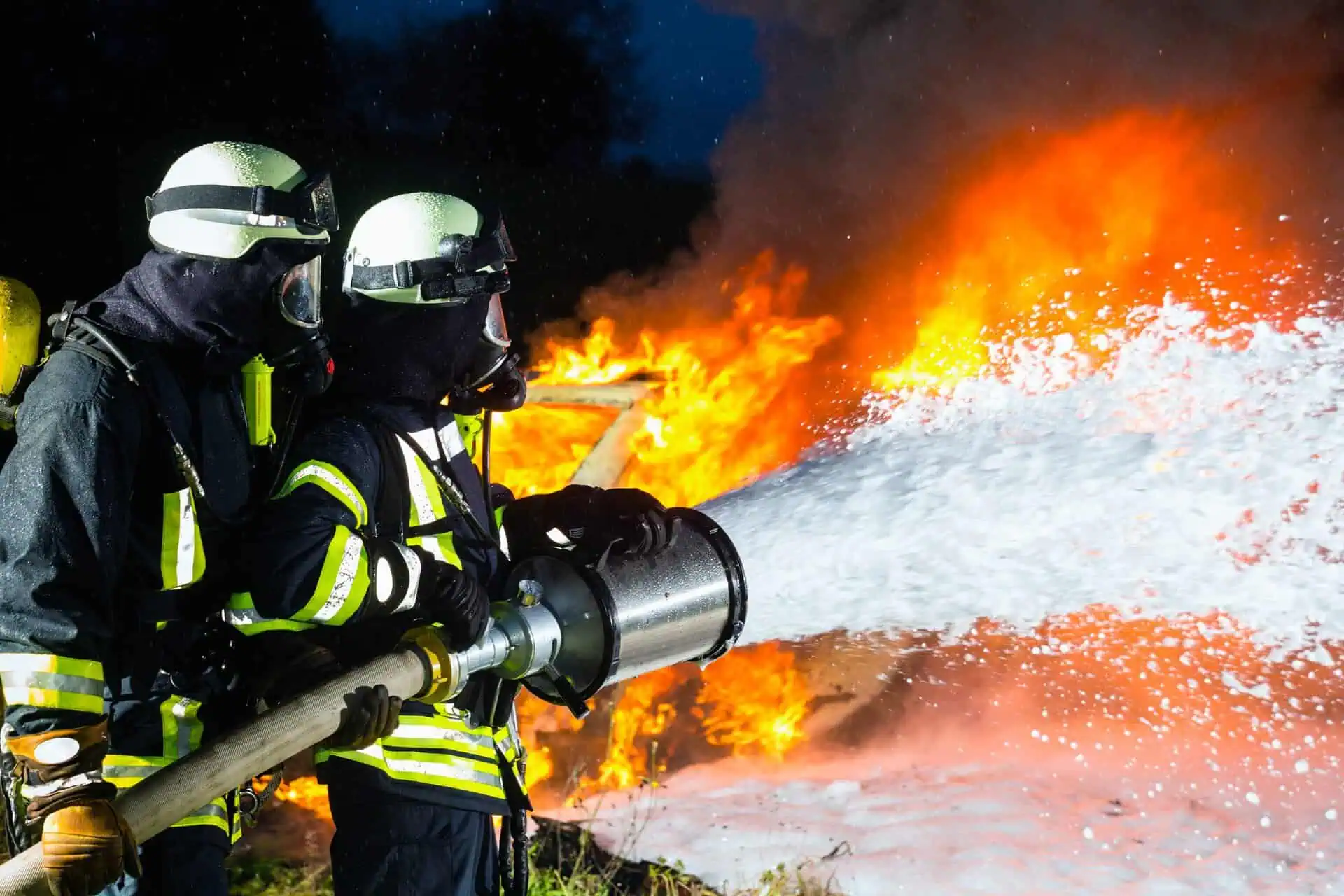AFFF contains per- and poly-fluoroalkyl substances (PFAS), chemicals that persist in the environment and accumulate in the human body.
Research has indicated a potential link between exposure to these chemicals and health issues like ulcerative colitis, a chronic inflammatory bowel disease.
Ulcerative colitis, which involves inflammation and ulcers in the lining of the colon and rectum, can have a profound impact on an individual’s quality of life.
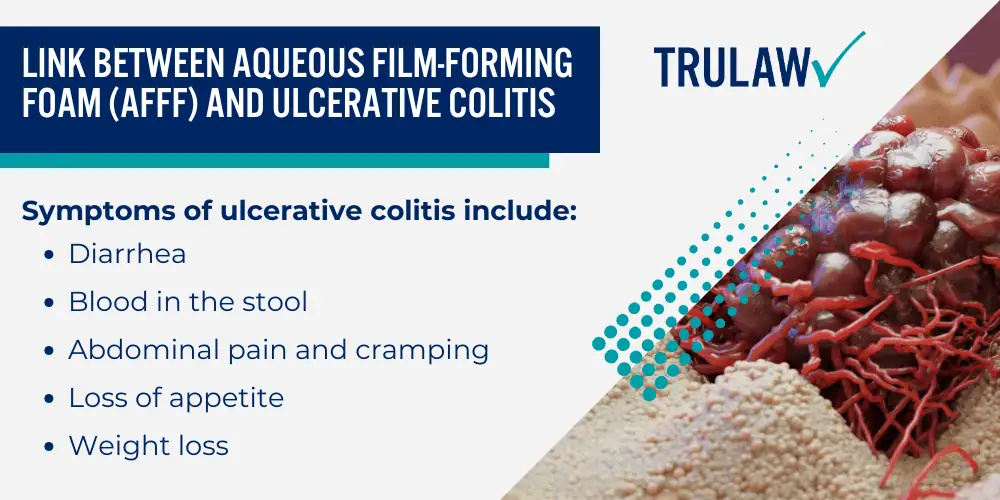
Symptoms of ulcerative colitis include:
- Diarrhea
- Blood in the stool
- Abdominal pain and cramping
- Loss of appetite
- Weight loss
The condition can lead to complications such as colon cancer, blood clots, infections, and kidney stones.
Studies connecting PFAS exposure to ulcerative colitis include:
- A 2018 study published in the Journal of Environmental Research identified a strong association between long-term PFOA exposure and the risk of developing ulcerative colitis.
- A 2020 study published in the Journal of Crohn’s and Colitis linked elevated PFAS levels with a higher risk of developing ulcerative colitis later in life.
The risk of ulcerative colitis increases with exposure to AFFF, and improper disposal of the foam can result in contamination of soil, air, and water.
PFAS Chemicals in Firefighting Foam and Their Impact on Health
Manufacturers of firefighting foam, along with the U.S. Navy, have been aware of the risks associated with AFFF for decades.
Various studies have linked PFAS chemicals to an array of health concerns, from cancer to autoimmune diseases like ulcerative colitis.
Key studies connecting AFFF exposure to health problems include:
- A study from the National Research Centre for Environmental Toxicology in Australia found that firefighters have higher levels of PFAS in their bloodstream.
- The International Journal of Cancer published a study linking PFOS exposure to breast cancer.
- Research by the University of California, Berkeley indicated higher PFAS levels in women firefighters compared to office workers.
- A study in the Journal of the American Medical Association found a connection between PFOA exposure and an increased risk of ulcerative colitis, kidney cancer, and testicular cancer.
- The International Agency for Research on Cancer (IARC) classified PFOA as possibly carcinogenic, and PFOS as potentially harmful to humans.
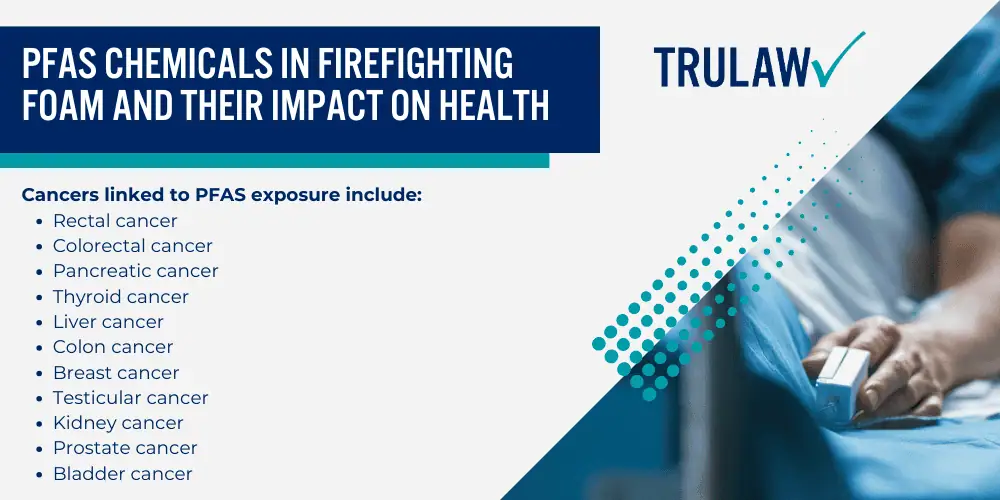
Cancers linked to PFAS exposure include:
- Rectal cancer
- Colorectal cancer
- Pancreatic cancer
- Thyroid cancer
- Liver cancer
- Colon cancer
- Breast cancer
- Testicular cancer
- Kidney cancer
- Prostate cancer
- Bladder cancer
Other health issues associated with PFAS exposure include:
- Decreased vaccine response in children
- Increased risk of high blood pressure or pre-eclampsia in pregnant women
- Changes in liver enzymes
- Small decreases in infant birth weights
- Increased cholesterol levels
The potential health impacts of PFAS exposure continue to raise serious concerns, particularly for individuals who have worked with or around AFFF firefighting foam for long periods of time (such as civilian firefighters and military firefighters).
